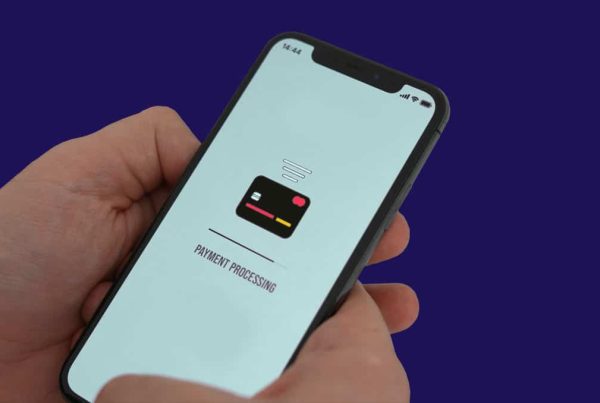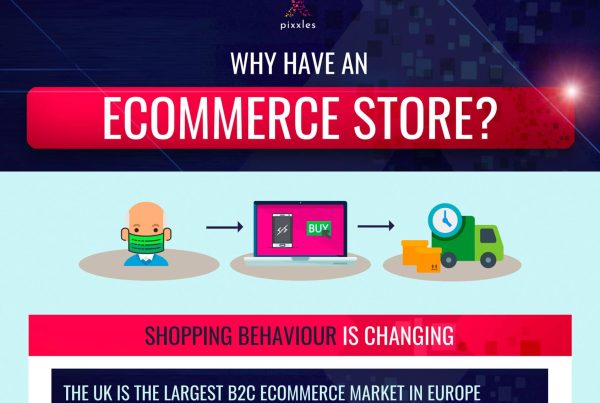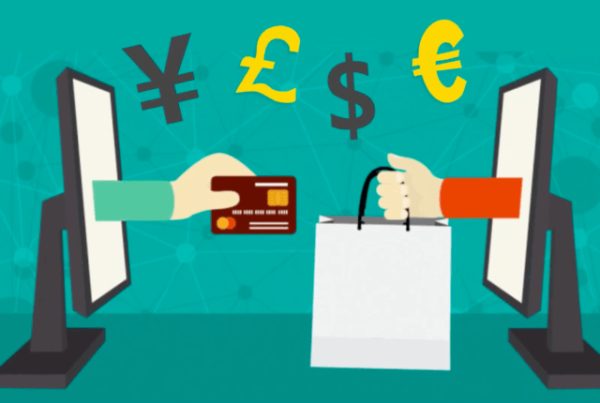Today, merchants have a variety of payment methods at their disposal, ranging from traditional credit cards to the most innovative digital wallets and contactless payment solutions.
While being able to accept multiple payment types is certainly a good thing, it also comes with some pitfalls.
Firstly, it is actually quite difficult to process multiple payment types. There are several technical considerations involved. Secondly, keeping up with regulatory compliance across different countries and payment methods is rather difficult. Thirdly, cyber-attacks, data breaches, and payment fraud are very real threats that can cause substantial harm to merchants.
With all this in mind, the question becomes, how do merchants solve these problems? This is where Payment Service Providers (PSPs) come into the picture.
» MORE: What Is The Difference Between A Bank and A Payment Processor?
What is a PSP or payment service provider?
Payment service providers (PSPs) are third-party organisations that enable merchants to safely accept online payments. They streamline various payment methods so that merchants don’t have to manually integrate each payment type.
Here is a list of the types of payments that PSPs process:
- Credit card payments (Visa, MasterCard, American Express, Discover, etc.)
- Debit card payments
- Digital wallets (PayPal, Skrill, Neteller, etc.)
- Apple Pay
- Google Pay
- Bank transfers (ACH transfers, wire transfers)
- Direct debit
- Cryptocurrencies (Bitcoin, Ethereum, etc.)
- Contactless payments (NFC technology)
- Prepaid cards
- Buy Now, Pay Later solutions
- QR Code payments
- Cash on delivery (for ecommerce businesses offering this)
- Gift cards and loyalty points
- Local payment methods specific to certain countries or regions
- Cross-border payments (for international transactions)
- In-app payments (for mobile apps)
- Subscription or recurring billing
- Electronic check processing or eChecks
PSPs also enable you to accept payments in various locations, which include:
- Mobile locations
- In-store
- Online
- mPOS (Mobile Point of Sale)
- Over the phone
- Mail order
- Pop-up shops
- Event booths/fairs
- Vending machines
- Self-service kiosks
- Drive-thrus
- Contactless locations
- Pre-order locations
Needless to say, the online payment ecosystem is quite complex and involves multiple entities and processes. The role of PSPs is to simplify the online payment maze for merchants, providing a unified platform that consolidates various working parts into one manageable interface.
As the ecommerce landscape becomes more intricate, partnering with a competent PSP isn’t just a luxury. It’s a necessity for merchants.
What types of services do payment service providers offer?
Beyond just processing payments, many PSPs also provide the following services:
- Direct access to major card networks
- Analytics and reporting tools to monitor sales trends
- Fraud protection and advanced security measures
- PCI DSS compliance to ensure secure card transactions
- Multilingual support and currency conversion for global payments
- Open API frameworks for tailored integrations
- Integrated ecommerce shopping cart solutions
- Point of sale (POS) systems and mobile card readers
- Subscription and recurring billing capabilities
- Virtual terminals for phone and mail order payments
- Digital wallet integration (like Apple Pay or Google Wallet)
- Invoice creation and management
- Chargeback management and support
- Automated payment reminders for customers
- Integration with accounting and financial software
» MORE: Learn more about what we offer on our Payment Processing Solutions page.
What is an example of a payment service provider?
Shopify Payments, Amazon Pay, and PayPal are some examples of larger payment service providers (PSPs). For a more personalised service, we encourage you to reach out to us.
Pixxles stands out thanks to its exceptional customer service.
How do payment service providers work?
PSPs more or less operate as a financial umbrella, adding multiple customers into one account with subaccounts for individual merchants. After you sign up with a payment service provider, it handles certain risks for you, such as fraud and chargebacks, which can lead to occasional account holds.
PSPs generally offer flat-rate pricing, especially for smaller merchants. This means merchants pay a consistent rate for every transaction, simplifying the pricing structure, which is appealing to businesses that prefer predictable fees. Rates may be negotiable after reaching significant annual sales.
Additionally, PSPs are often designed with integrated solutions to provide a seamless experience for merchants. This can include everything from invoicing tools to ecommerce shopping carts to POS systems.
Example of an online transaction facilitated by a PSP
1. Once your customer submits a payment, a transaction request is sent to your chosen payment gateway from your checkout page.
2. Your payment service provider verifies the customer’s payment details through a secure payment gateway.
Bear in mind that some PSPs might have their own integrated payment gateways, while others might work with third-party payment gateways. The gateway is responsible for securely transmitting transaction data to the card networks or issuing banks. The PSP manages the overall process.
Also, note that the payment gateway forwards the transaction details to the issuing bank (or credit card network) for verification. Neither the payment gateway nor the PSP typically verify the customer’s payment details directly. Instead, they route the transaction information where it needs to go.
3. Once your customer’s payment details are verified, your PSP transfers funds from the customer’s bank to your merchant account.
Note that once the issuing bank approves the transaction, it doesn’t immediately transfer funds to your merchant account. Instead, the transaction is authorised, and the funds are “held.” The actual transfer of funds happens during the settlement process, which can be at the end of the business day or another specified time.
4. Your PSP sends a transaction notification to you and your customer.
» MORE: Merchant Account vs Payment Gateway: What’s the Difference?
Defining a merchant account and payment gateway
Many payment service providers (PSPs) offer both a merchant account and a payment gateway, bundling them together to streamline the payment process for businesses.
If you’re unfamiliar with what a merchant account and payment gateway are, here’s a brief breakdown:
Merchant account – This is a type of bank account that allows businesses to accept payments via debit or credit cards. It holds funds captured from credit card sales and then transfers these funds to a business’s regular bank account.
Payment gateway – A payment gateway is essentially the digital equivalent of a physical point-of-sale terminal. It transfers payment data from the customer to the acquirer and then transfers the payment acceptance (or decline) back to the customer.
» MORE: Why Are Merchant Accounts Good for Small Businesses?
Payment service providers vs. merchant account providers explored
One major difference between payment service providers (PSPs) and merchant account providers is that PSPs aggregate multiple businesses under a single account, while merchant account providers assign individual accounts.
There are plenty of other differences as well.
Here’s a list highlighting the differences between payment service providers (PSPs) and merchant account providers.
Account Structure
PSPs: Aggregate multiple businesses under a single account.
Merchant Account Providers: Assign individual, dedicated accounts for each business.
Approval Process
PSPs: Offer faster approvals.
Merchant Account Providers: Require a more extended, comprehensive approval process.
Account Stability
PSPs: Pose a higher risk of account freezes or holds.
Merchant Account Providers: Provide greater account stability due to individualised assessment.
Pixxles helps you fix anything we think could cause problems before you even begin accepting payments through us. We also check your site regularly afterward to help keep you off the compliance naughty list.
Pricing Model
PSPs: Typically have fixed pricing with set limits.
Merchant Account Providers: Often offer customizable pricing.
Pixxles offers both fixed pricing and custom pricing solutions. See our Business Processing Payment page for more information.
Transaction Limits
PSPs: Often come with predefined transaction limits.
Merchant Account Providers: Allow for negotiation on transaction volume and limits.
Flexibility:
PSPs: Provide an all-in-one solution suitable for businesses seeking simplicity and efficiency.
Merchant Account Providers: Offer various solutions for specific business needs.
Advantages of Using A PSP
Using a payment service provider comes with the following benefits.
Versatility in payment options – PSPs usually accommodate various payment methods and allow secure acceptance of multiple currencies.
Cost-effective solution – Compared to traditional merchant accounts, PSPs generally have lower startup costs.
All-inclusive toolset – PSPs often come packed with utilities like invoicing, team management, and loyalty programs, which might be absent or fragmented in conventional merchant service offerings.
Rapid deployment – The setup process for payment service providers is straightforward and fast. Typically, it is much faster than the labor-intensive approval process seen with many merchant accounts.
No hidden security costs – PSPs usually cover PCI security compliance within their package, helping to protect you from unexpected security-related fees.
Cutting-edge features – Many PSPs provide integrations with modern technology like contactless payments, QR code transactions, and cryptocurrencies.
Global reach – With the ability to process international payments, PSPs enable businesses to cater to a global clientele.
Support and assistance – Top-tier PSPs offer 24/7 customer support.
Enhanced user experience – Many PSPs come with user-friendly dashboards and sales analytics.
Adaptability and scalability – As businesses grow, PSPs can easily adapt, offering solutions that cater to expanding operational needs.
Integrated marketing tools – Some PSPs also offer marketing tools that help businesses connect with their audiences.
What are the benefits of choosing Pixxles as your payment service provider?
Pixxles is authorised and regulated as an Authorised E-Money Institution by the Financial Conduct Authority (FCA) in the UK.
This means we don’t need a third-party license to provide payment services and can remain directly accountable to our customers and to the Regulator.
Here are some guarantees from Pixxles:
- We comply with strict regulatory standards to give you and your customers high levels of protection.
- We protect the security of your card transactions through compliance with standards set out in the Payment Card Industry Data Security Standard (PCI DSS) and the Payment Services Directive 2 (PSD2).
- We monitor your compliance, and our risk management system helps protect you from high levels of fraud and chargebacks.
- We meet the standards set in the General Data Protection Regulation (GDPR).
- We use a risk-based approach to proactively identify and mitigate risks to your business.
- We perform a Website Compliance Review to ensure you meet any Card Scheme rules that are relevant to our processing relationship.
- We give due diligence approvals. Some card payment processors might tell you you’re approved before checking everything. At Pixxles, we have our own team of underwriters, and we check everything at the start, so when we say yes, we mean yes.
Additional benefits of choosing Pixxles include:
- Pay in 100+ currencies
- Recurring billing
- Transactional reports
- Deposit statement reports
- Chargeback reports
- Access the Virtual Terminal functionality and grant access to additional users
- Hassle-free integration with popular shopping carts
- Digital banking services
» MORE: Pixxles security compliance – Keeping you safe & secure
Pixxles pricing and fees
You can learn more about our pricing and fees on our Payment Processing Pricing page.
How will my payment service provider keep my payments secure?
We can’t speak for every payment service provider, but any UK-based PSP worth its salt will adhere to the following:
Payment Card Industry Data Security Standard (PCI DSS), the Payment Services Directive 2 (PSD2), and the General Data Protection Regulation (GDPR).
Additionally, the analytics and insights provided by your PSP should alert you to fraudulent patterns and potential bad actors. Active threat monitoring is a must.
List of security features of some PSPs:
- Fraud detection systems
- Advanced encryption methods
- Adherence to PCI DSS global security standards
- Shielding merchants from potential cyber threats
- Real-time transaction monitoring
- Analytics and insights for spotting unusual activity
- Data-driven insights to identify potential bad actors
- Secure storage of customer payment information
- Regular security audits and assessments
- Multi-factor authentication for transaction approvals
» MORE: Payment Security for Merchants








